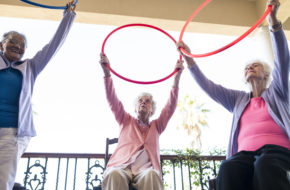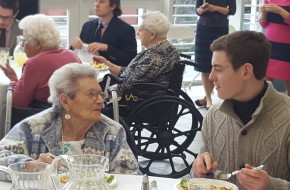I love when we’re able to help people gain the care they need, but often don’t want to seek, typically for a variety of reasons.
Right now, several Diakon senior living communities,
Diakon Senior Living – Hagerstown among them, are helping motivate
people to seek personal care or, as it is known here in Maryland,
assisted living—through various incentives.
But why might older adults who need such care not seek it immediately? Certainly, as people grow older, they may notice changes in abilities. Whether someone has suffered a fall, is recovering from a surgery or simply needs assistance completing the typical tasks of daily living, personal care may be of great benefit.
But when some older adults hear the phrase “personal care,” they may have a negative reaction.
They think, for example, that they don’t need any help and that they
are still sufficiently independent to continue caring for themselves.
That perspective is understandable, but family members and other friends may quickly spot the need for assistance.
What are signs a loved one may benefit from personal care?
Is a loved one no longer taking care of him- or herself? Wearing the
same clothing for more than a day? No longer seeming to care about
appearance?
If so, the person may be having trouble completing these tasks or
attending to basic needs. Not only can this situation decrease
confidence, but it can also continue to affect independence.
If loved ones react negatively to the idea of personal care, they may
be falling victim to myths they’ve heard. To combat this, you could
help to dispel those myths …
● Personal care will decrease my independence. This couldn’t be further from the truth; in fact, personal care can actually enrich your quality of life enough that you may become more independent. For example, if you don’t need to spend time worrying about certain activities of daily life, you may be able to focus more fully on wellness, improving your health through exercise and participating in more lifelong-learning opportunities.
To read more about dispelling the myths about personal care, please click here.











